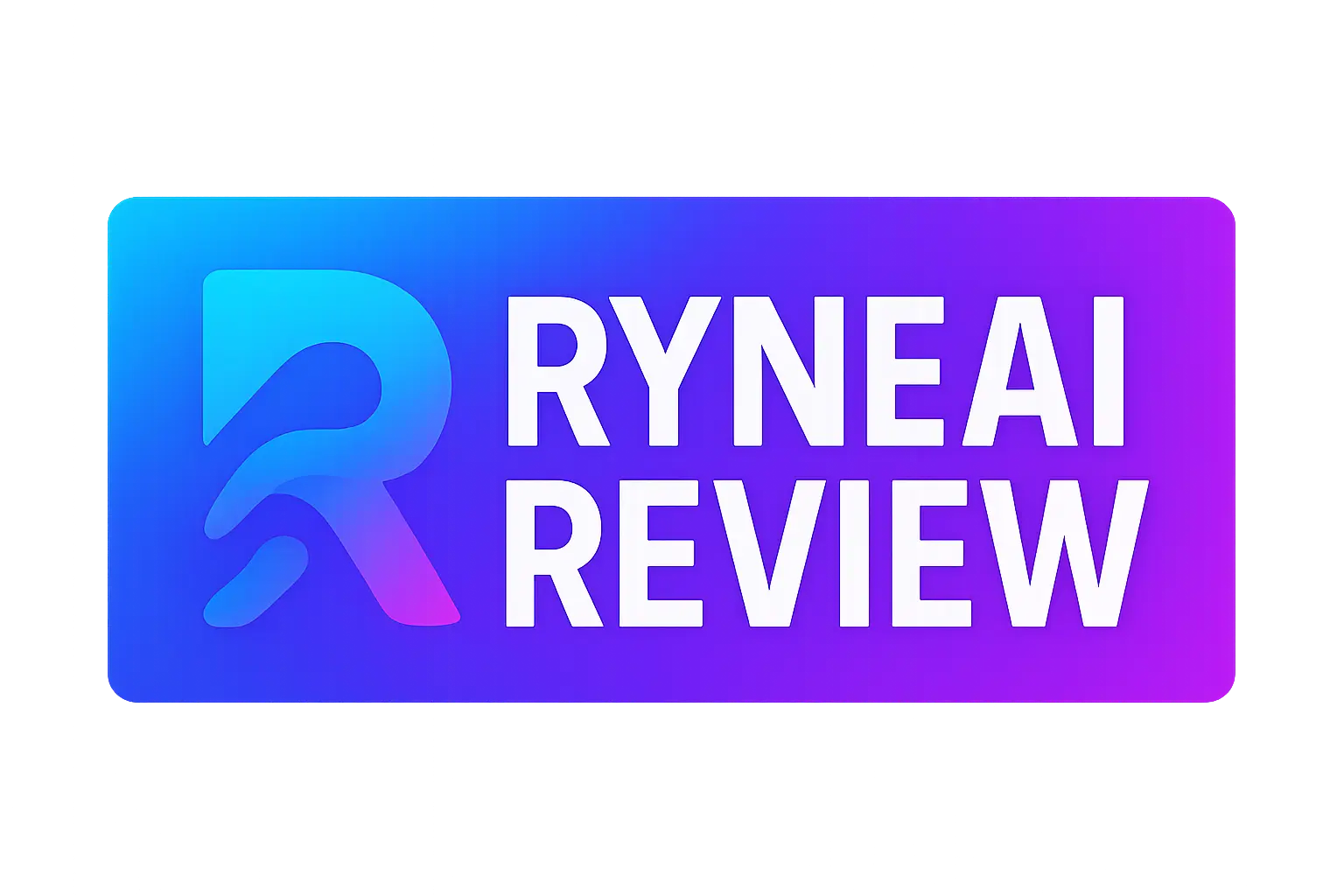
Students often struggle to balance AI tools with academic honesty in their papers. AI programs like ChatGPT and Ryne AI have changed how we write and research for school. This blog will show you the Ryne AI best practices for academic integrity while still using these helpful tools.
Ready to write better papers without breaking the rules?
Key Takeaways
- Use Ryne AI as a helper, not a replacement for your own thinking. The best work comes when you mix AI tools with your own ideas and voice.
- Always tell your teachers when you use AI in your schoolwork. Add notes like “The author used GPT-3 to help create this text” in your citations.
- Ryne Text Humanizer makes AI-assisted writing sound more natural while keeping your original ideas intact. This helps your work flow better without losing your personal style.
- Check all AI content for mistakes before turning in your work. AI tools sometimes make up fake sources or add wrong facts that could hurt your grade.
- Ryne Chat offers real-time help with structuring arguments and clarifying ideas without writing your paper for you. It works more like a study buddy than a ghostwriter.
The Role of AI in Academic Writing
AI tools have changed how students write papers and complete assignments. Ryne AI helps students plan, draft, and polish their work while keeping their own voice and ideas at the center.
Ryne AI’s Impact on Academic Writing
Ryne AI has changed how students approach their papers and essays. The tools help with language flow, idea sorting, and tone shifts while keeping the student’s voice intact. RYNE TEXT HUMANIZER makes writing sound more natural and helps avoid detection by plagiarism tools.
Students can focus on their ideas rather than getting stuck on how to express them. This balance lets them grow their skills while using tech as a helper, not a replacement.
Technology should amplify human thought, not replace it.
RYNE CHAT stands out by offering real-time feedback without writing complete content for users. It guides students through building stronger arguments and organizing thoughts clearly.
Many students find that using these tools actually improves their critical thinking because they still need to create the core ideas themselves. The goal isn’t to skip the learning process but to make it more effective.
Ryne AI supports academic growth by working alongside students rather than doing the work for them.
Best Practices for Maintaining Academic Integrity with Ryne AI
Ryne AI helps students maintain academic integrity through smart features that boost learning without crossing ethical lines – read on to discover how to balance AI assistance with your own academic voice!
Use AI as a Supplementary Tool, Not a Replacement
AI tools can boost your writing speed and help solve problems, but they can’t replace your brain. Think of Ryne AI as your study buddy, not your ghost writer. The best approach mixes AI assistance with your own ideas and critical thinking.
You might ask AI to help brainstorm topics or polish grammar, but the core thoughts should come from you.
Your professors value your unique perspective and analysis. AI can suggest outlines or help with wording, but it lacks your personal experiences and insights. Students who maintain academic integrity use tools like Ryne Chat for support while keeping their original voice intact.
This balance helps you grow your skills rather than just outsourcing your learning.
Emphasize Originality and Personal Input
Beyond using AI as a helper tool, your own ideas must shine through in academic work. Personal input forms the backbone of true learning. Start with your own research and thoughts before asking AI for suggestions.
This approach keeps your work honest and truly yours.
Your voice matters most in academic writing. Misrepresenting AI-created content as your own counts as academic fraud. Smart students use AI to polish their ideas, not replace them.
Try writing your main arguments first, then use Ryne AI to refine your language or structure. Add personal examples and insights that only you could create. This mix of human creativity with AI support creates papers that reflect your real knowledge while still meeting academic standards.
Properly Cite AI-Generated Content
Citing AI tools in your academic work follows the same basic rules as citing any source. You must give credit where it’s due. If you use Ryne AI or other generative AI to help write your paper, add a clear note about it.
For example, write “OpenAI’s ChatGPT 3.5 was utilized to assist in the creation of this article” in your citations. This honesty builds trust with your readers and respects academic integrity policies.
Faculty members often require specific AI citations when these tools are allowed in classwork. Some professors ask students to submit both AI-generated drafts and final versions for review.
A simple statement like “The author generated text in part with GPT-3” can satisfy many academic requirements. This transparency helps maintain the standards of academic writing while still letting you leverage AI for learning.
Next, let’s explore how Ryne AI’s specific features can support ethical academic growth.
Leveraging Ryne AI Features for Ethical Academic Growth

Ryne AI offers several features that students can use ethically in their academic work. These tools help you grow as a writer while still keeping your academic work honest and true to your own voice.
Flesch-Kincaid Grade Level: 7.0
Ryne AI packs powerful tools that boost your learning without crossing ethical lines. You can transform your writing process while still maintaining academic integrity through smart AI integration.
Ryne Text Humanizer for Natural Writing Flow
The Ryne Text Humanizer transforms AI-assisted writing into natural, flowing text that reads like human work. This tool makes small but vital changes to sentence structure and word choice, helping students avoid AI detection while maintaining academic integrity.
The Humanizer doesn’t just mask AI use, it improves the quality of writing by adding personal voice and style to academic papers.
Students find the Text Humanizer especially helpful for polishing rough drafts. The tool keeps your original ideas intact while adjusting the language to sound more natural. Many academic detection systems flag writing that seems too perfect or follows AI patterns too closely.
With this feature, your writing maintains its core message but flows with the natural rhythm that professors expect in student work.
Ryne Chat for Real-Time Academic Assistance
Ryne Chat stands out as a real-time academic companion that offers immediate feedback while you work. Students can ask questions about their assignments, get help structuring arguments, and receive guidance on complex topics without sacrificing their original thinking.
Unlike other AI tools, Ryne Chat won’t write your paper for you. It supports your learning journey by enhancing your skills rather than replacing them.
Got stuck on a tricky thesis statement? Ryne Chat can suggest improvements to your wording or help clarify your ideas. Need to check if your argument flows logically? This feature provides instant input on organization and clarity.
Many students find this real-time support valuable for developing stronger academic skills while maintaining the integrity of their work. Ryne Chat acts like a smart study buddy, always ready to assist but never doing the heavy lifting of critical analysis that remains essential to true academic growth.
Essay Composer for Structuring Ideas Effectively
Moving from real-time chat assistance, Ryne AI also offers powerful tools for organizing your academic thoughts. Essay Composer helps students build strong frameworks for their papers without doing the writing for them.
This tool works as a brainstorming partner, helping you outline and arrange your ideas in logical order.
Students should view Essay Composer as a planning aid, not a content creator. The tool requires your original input and critical thinking to be truly useful. Many students find that organizing their thoughts first leads to better papers with clear flow and structure.
You still need to add your voice, research, and analysis to create work that truly reflects your learning. This approach supports academic growth while keeping your work honest and personal.
Building a Transparent Relationship with AI Tools
Building trust with AI tools starts with open communication about how you use them. Tell your professors when you’ve used Ryne AI or similar programs to help shape your academic work.
Ryne AI: Best Practices for Academic Integrity
Disclose AI Use in Academic Work
Honesty forms the backbone of academic work. Students must clearly state when they use Ryne AI or other AI tools in their assignments. Many schools now require specific citations for AI-generated content, similar to how you would cite a book or article.
For example, you might need to add a note like “The author generated text in part with GPT-3” at the end of your paper. This transparency builds trust with professors and follows the principles of academic integrity.
Check your school’s rules about AI use before starting any assignment. Some teachers provide clear guidelines in their syllabus about what AI tools you can use and how. Being open about your AI use shows respect for the learning process.
It also helps you develop good habits for your future career, where proper attribution of sources matters. The goal isn’t to avoid AI tools but to use them responsibly while still developing your own critical thinking skills.
Regularly Review AI-Generated Content for Accuracy and Voice
After disclosing your AI use, checking what the AI actually wrote becomes vital. AI chatbots like GPT-4 and Gemini don’t give the same answers even when you ask the same question twice.
This makes regular review a must-do step in your academic process. AI tools might make up fake sources or add wrong facts to your papers without warning.
Going through AI content helps you spot these errors before they hurt your grades. You should always verify sources and check facts in AI-generated text. This review process also makes sure the final paper sounds like you wrote it, not a robot.
Your professors know your writing style, so keeping your personal voice intact protects your academic integrity while still getting AI support for your work.
Conclusion
Academic success with AI tools depends on our approach to using them, rather than simply whether we use them or not. Ryne AI provides intelligent features such as Text Humanizer and Essay Composer that can enhance your writing process while maintaining academic integrity.
The essential aspect is striking a balance: utilize AI to help organize thoughts or propose edits, but always incorporate your own perspective and ideas. Be sure to cite AI assistance just as you would any other source.
Combining AI support with your own intellectual efforts will help you develop as a student and writer while upholding academic principles.
FAQs
1. What is Ryne AI and how does it support academic integrity?
Ryne AI is revolutionizing student success through ethical AI use. It helps students improve their writing skills while maintaining originality in their work. This advanced AI technology supports academic excellence without bypassing AI detection tools.
2. How can students use AI tools ethically in their studies?
Students should use AI tools like ChatGPT as a learning aid, not a replacement for critical thinking. They must properly cite AI-generated content and focus on personalized learning.
3. What makes Ryne AI different from other AI writing tools?
Ryne AI excels where others fail by delivering content that maintains academic integrity while helping students develop their writing abilities.
4. Can AI detectors spot content created with Ryne AI?
Ryne AI transforms AI-generated text to help students create original work that integrates smoothly with their own writing style.
5. How does Ryne AI help with academic support?
Ryne AI offers comprehensive academic tools that help with research, writing improvement, and responsible AI use. It stands out as a tool for academic success by focusing on learning rather than just content creation.
6. What are the best practices for using AI in academic writing?
Always start with your own ideas and research. Use AI as a learning partner to improve your writing skills, not as a shortcut. Remember that AI can be a fantastic helper, but it shouldn’t replace your original thinking.


